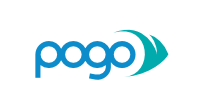The main objectives of the cruise are: a) The study of oceanographic processes in the waters of the Cape Verde Archipelago and b) The observation of surface circulation in the Atlantic basin, including the mapping of sargasso distribution in the tropical and equatorial East Atlantic basin.
A multidisciplinary observation program in the areas of physical oceanography, marine chemistry and marine biology covering the waters of the Cape Verde Archipelago will be carried out between October 30 and November 15 2021 by a scientific team from IH, ESCM-UTA and GEOMAR.
As outcomes of the cruise, it is intended to show how the biogeochemical processes are related with the complex oceanic dynamics that characterize that area, where the Canary Current, to the north, inflects westward into the Equatorial North Current and, to the south, the Equatorial Countercurrent recirculates originating the current of Mauritania and interacting with the southern region of the Archipelago.
The Open Sea mission covered an extensive area of the Eastern Atlantic and took the opportunity to launch a set of NOAA surface driftfloats in previously defined geographical locations that fall within areas characterized by important circulation structures of the Eastern Atlantic Ocean. The data transmitted by these floats in real time will contribute to NOAA’s Global Drifter Program and will allow to deepen the knowledge of these large circulation systems. The set of floats that was launched near the Cape Verde Archipelago will complement the observations made by NRP D.Carlos I. This same set of observations – that includes sample collection at selected locations and depths – will also allow the biogeochemical characterization of the water masses.





